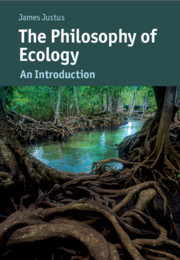Book contents
- The Philosophy of Ecology
- Cambridge Introductions to Philosophy and Biology
- The Philosophy of Ecology
- Copyright page
- Contents
- Figures
- Preface
- Introduction
- 1 The Ecological Niche
- 2 Distinctively Ecological Laws and the Reality of Biological Communities
- 3 The Balance of Nature
- 4 Modeling in Ecology
- 5 Biodiversity
- 6 Progress in Applied Ecology
- 7 Fact and Value in Applied Ecology
- References
- Index
7 - Fact and Value in Applied Ecology
Published online by Cambridge University Press: 28 May 2021
- The Philosophy of Ecology
- Cambridge Introductions to Philosophy and Biology
- The Philosophy of Ecology
- Copyright page
- Contents
- Figures
- Preface
- Introduction
- 1 The Ecological Niche
- 2 Distinctively Ecological Laws and the Reality of Biological Communities
- 3 The Balance of Nature
- 4 Modeling in Ecology
- 5 Biodiversity
- 6 Progress in Applied Ecology
- 7 Fact and Value in Applied Ecology
- References
- Index
Summary
Ecology is receiving more attention from philosophers as the severity and complexity of environmental problems, and ecology’s potential role in solving them, becomes apparent. Threats to coral reefs and management strategies developed in response is a vivid example. This chapter explores the ways values influence both applied ecology and policy making informed by it. Most sciences are concerned with discovering and explaining new truths. But some applied sciences pursue more immediately pressing, ethical goals, such as improving health or conserving biodiversity. Nonepistemic values permeate these ethically driven sciences. This perception has recently encouraged the view they are value-laden in a strong sense: both ethical values and nonnormative facts factor indispensably in these sciences, and their respective contributions cannot be clearly demarcated. In fact, the inextricable suffusion of value has even been taken to challenge the cogency of a fact/value distinction. Such claims are overstated. Ethically driven sciences are best conceptualized as conditionalized endeavors. Achieving ethically valued objectives dictates some of their structure, but this influence can be demarcated from the factual status of claims made within them. The conditional nature of ethically driven sciences grounds this delineation and reaffirms the fact/value distinction remains distinct.
Keywords
- Type
- Chapter
- Information
- The Philosophy of EcologyAn Introduction, pp. 161 - 181Publisher: Cambridge University PressPrint publication year: 2021

